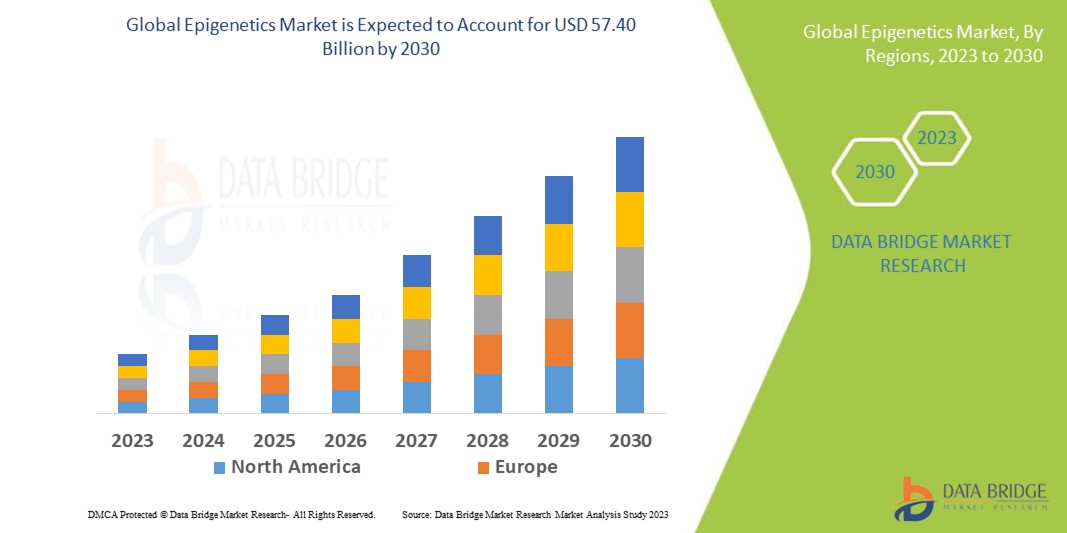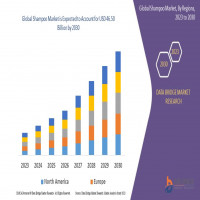Epigenetics Market – Industry Trends and Forecast to 2031

What is Epigenetics?
Epigenetics is like the software of our DNA—it doesn’t change the genetic code itself, but it controls how that code is read and used by our cells. Imagine your DNA is a book, and epigenetics are the highlighters, bookmarks, and sticky notes telling your body which parts to read and which to ignore. Pretty fascinating, right?
This biological phenomenon governs how genes turn “on” or “off” without altering the underlying DNA sequence. It's the reason why two identical twins with the same DNA can end up looking or behaving differently, or why a healthy lifestyle might positively impact the next generation. The major players in this molecular magic? DNA methylation, histone modification, and RNA-associated silencing.
Epigenetics plays a pivotal role in everything from embryo development to aging, from cancer to neurological disorders. It bridges the gap between nature and nurture, giving us insights into how external factors like environment, diet, and stress can tweak gene expression. As research deepens, epigenetics is becoming a cornerstone in precision medicine, promising tailored therapies based on an individual’s unique biological makeup.
The Science Behind Epigenetic Modifications
Let’s dive a bit deeper into the science. Epigenetic modifications are heritable changes that affect gene activity and expression. The main types include:
DNA Methylation: The addition of a methyl group to DNA, often silencing gene expression. It’s like taping over a light switch.
Histone Modification: Histones are proteins around which DNA is wrapped. Modifications like acetylation or methylation of these proteins can either expose genes for transcription or tuck them away.
RNA-Based Mechanisms: Non-coding RNAs like microRNAs and long non-coding RNAs can interfere with gene expression at the post-transcriptional level.
These processes are not random. They are tightly regulated and responsive to the environment. That’s why identical twins don’t always suffer from the same diseases or why some cancers can be traced back to environmental exposures.
The implications are huge. We're not just talking about better understanding biology—we're talking about changing the course of diseases before they even begin, through early detection, prevention strategies, and more personalized medicine.
Overview of the Global Epigenetics Market
Market Size and Growth Rate
The global epigenetics market is booming, and it’s not slowing down anytime soon. In 2024, the market was valued at approximately USD 1.7 billion, and it’s projected to surpass USD 4.5 billion by 2030, growing at a compound annual growth rate (CAGR) of around 14–17%. This impressive growth is being driven by a confluence of scientific, technological, and commercial factors.
Get More Detail: https://www.databridgemarketresearch.com/reports/global-epigenetics-market
Pharmaceutical giants, biotech startups, and academic institutions are all diving into the epigenetic pool. They’re drawn by the potential to develop revolutionary therapies for cancer, neurodegenerative diseases, autoimmune disorders, and more. As our understanding of gene regulation expands, the epigenetics toolbox becomes more valuable.
More investment is being funneled into R&D, government grants are becoming more generous, and venture capitalists are starting to see dollar signs in DNA. With diagnostics, prognostics, and therapeutics all benefiting from epigenetic insights, the market is seeing a significant upswing.
Key Market Drivers
So, what’s fueling this fire? Several key drivers are responsible for the meteoric rise of the epigenetics market:
Rising Incidence of Chronic Diseases: With diseases like cancer and Alzheimer’s becoming more prevalent, there’s a pressing need for innovative diagnostic and therapeutic tools.
Growth in Personalized Medicine: Epigenetics is a cornerstone of precision medicine, offering patient-specific insights that traditional genomics alone can’t provide.
Technological Advancements: Next-gen sequencing, CRISPR-Cas9 gene editing, and bioinformatics tools are making epigenetic research faster, cheaper, and more accessible.
Government and Private Sector Funding: From the NIH to venture capital firms, money is pouring into epigenetic research and product development.
Increased Awareness: Physicians, researchers, and even patients are becoming more aware of epigenetics and its implications.
As these drivers continue to gain momentum, the market is expected to expand not just in size but in scope, with new applications and technologies reshaping the landscape year after year.
Key Applications of Epigenetics
Oncology
Cancer research is where epigenetics is truly stealing the spotlight. In fact, oncology is the largest application segment in the epigenetics market—and for good reason. Most cancers have an epigenetic component, whether it's the silencing of tumor suppressor genes or the activation of oncogenes.
What makes epigenetic therapy so promising in oncology is its potential to reverse abnormal gene expression patterns without altering the DNA itself. This means we can “reprogram” cancer cells, potentially turning them from deadly to dormant. Exciting, right?
Drugs like DNA methyltransferase inhibitors (e.g., azacitidine and decitabine) and histone deacetylase inhibitors (e.g., vorinostat) are already FDA-approved for treating certain types of leukemia and lymphomas. Researchers are now exploring combination therapies, where epigenetic drugs are used alongside immunotherapy or chemotherapy to boost efficacy.
Early detection is another key area. Epigenetic biomarkers are being developed to identify cancers before symptoms even appear, making treatment more successful and less invasive.
Non-Oncology Applications
While cancer might be the poster child of epigenetics, the science extends far beyond tumors. Non-oncology applications are emerging fast and furiously across a range of therapeutic areas:
Neurological Disorders: Conditions like Alzheimer’s, Parkinson’s, and schizophrenia have epigenetic links, particularly through histone modification and non-coding RNAs.
Autoimmune Diseases: Epigenetic changes in immune cells can trigger disorders like lupus and rheumatoid arthritis.
Cardiovascular Diseases: Methylation patterns are being studied for their role in heart disease development.
Metabolic Disorders: Epigenetic alterations are connected to obesity, diabetes, and more.
Developmental Disorders: Diseases like Rett syndrome and Fragile X are rooted in epigenetic dysregulation.
These applications open the door for novel diagnostics, predictive tools, and therapeutic interventions. As research expands, epigenetics may well become the standard framework for understanding and treating complex diseases across the board.
Note: IndiBlogHub features both user-submitted and editorial content. We do not verify third-party contributions. Read our Disclaimer and Privacy Policyfor details.


